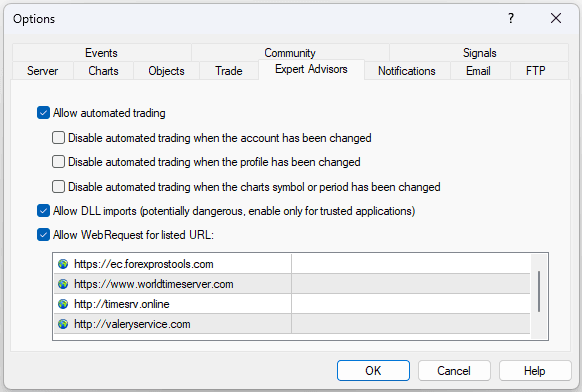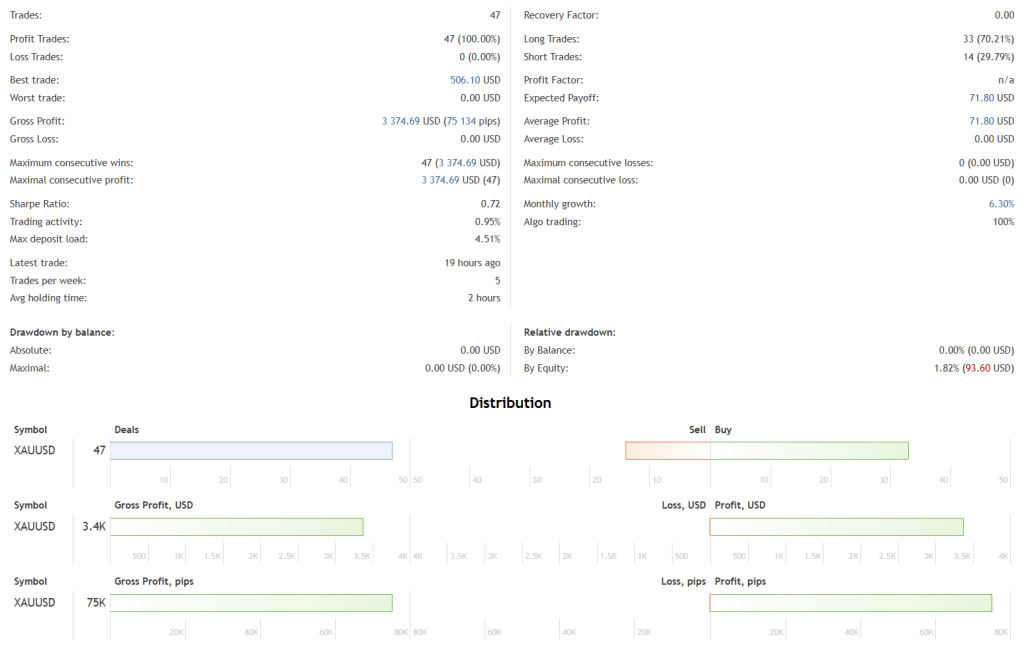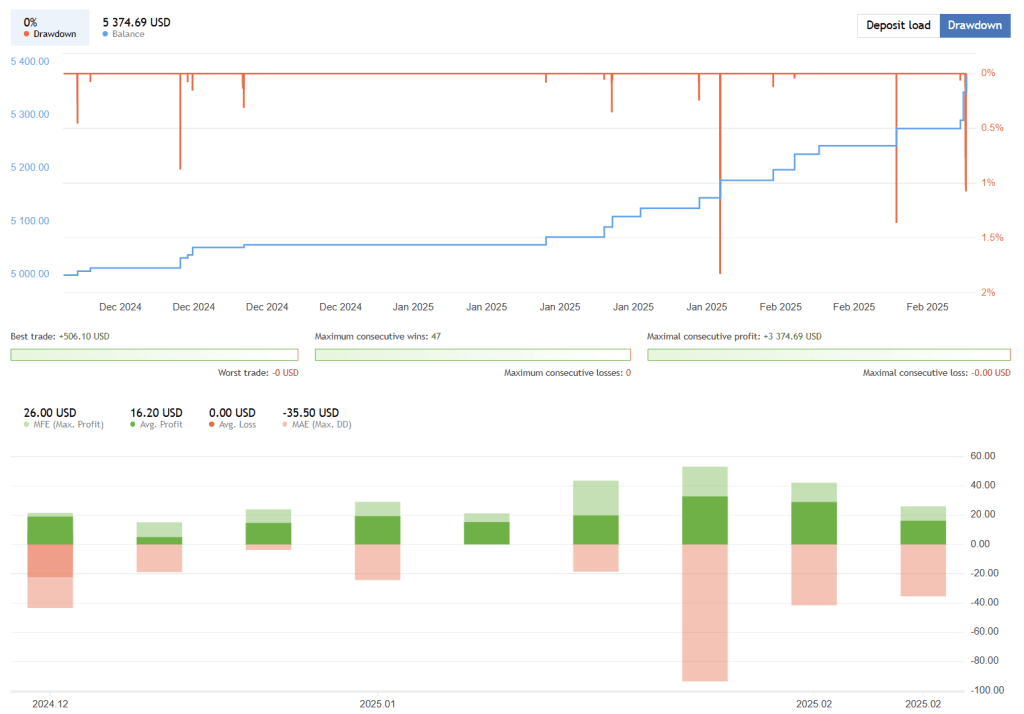Gold Scalping AI is an EA designed for trading gold. It is advertised as using artificial intelligence to analyze multiple indicators and choose the best trading opportunities. According to its description, the EA aims to manage the Risk-reward ratio better than other trading bots.
Key Features
- No Dangerous Strategies – The EA does not use grid trading or martingale strategies, which are often considered risky due to their potential for high losses. Instead, it opens only one trade at a time.
- Stop Loss Protection – Every trade is claimed to be protected by a stop-loss to limit potential losses.
- Easy to Use – The EA comes with optimized default settings, making it easier for traders to use without extensive customization.
- Time Filter – A smart time filter is included to help avoid major price gaps and unexpected movements during certain market conditions.
The AI Factor – Another Buzzword?
The EA claims to use artificial intelligence to analyze indicators and improve trading decisions. However, there are no clear details on how this AI works or if it provides any real advantage. In today’s market, “AI” is often added to every product you can find, like “AI toothbrushes” without real innovation behind it. This EA might be another example of that. Without concrete proof, traders should remain skeptical and focus on actual performance rather than AI claims. Still, the EA seems interesting and has to have some potential.
Please test in a demo account for at least a week first. Then, please familiarize yourself with and understand how Gold Scalping AI Robot works and only use it in a real account.
Recommendations for Gold Scalping EA
- Minimum account balance of 100$.
- Works best on XAUUSD. (Work on any Pair)
- Work best on H1 TimeFrame. (TimeFrame doesn’t matter)
- To reach stable results, the Gold Scalping EA should work on VPS without interruption. So we recommend running this free forex EA on a reliable VPS (Reliable and Trusted FOREX VPS – MyfxVPS)
- Low Spread account is also Recommended (Find the Perfect Broker For You Here)
Download a Collection of Indicators, Courses, and EA for FREE

Open Tools –> Options –> Expert Advisors. Check the option “Allow WebRequests for listed URL” Add the following: “https://api.openai.com/“, “https://investing.com/“, “https://economies.com/” and press “OK.” The EA takes news from the specified websites.




- Read More Goldenity AI EA FREE Download
Conclusion
Gold Scalping AI comes with some standard features that could be useful for traders, such as avoiding grid and martingale strategies and including stop-loss protection. However, its AI-related claims remain questionable due to the lack of clear explanations on how it works or how it improves trading decisions.







Hi,it can not be back tested..
Also, can you upgrade to 2.0???
I asked the author, but it seems like this is a specification that cannot be backtested.
A voi funziona?
no
os links tem de ter o ” www ”
https://www.economies.com/
https://www.investing.com/
Hello,
When I try to run the program on the demo, it displays a message that there are no URLs added, even though these addresses are already added. It is also not possible to run a test on historical data in the strategy tester.
Administrator, can you help?
no i think it tell you “think to add this urls”.. but not “this urls are not added”
can you update to version 2.4, latest verison